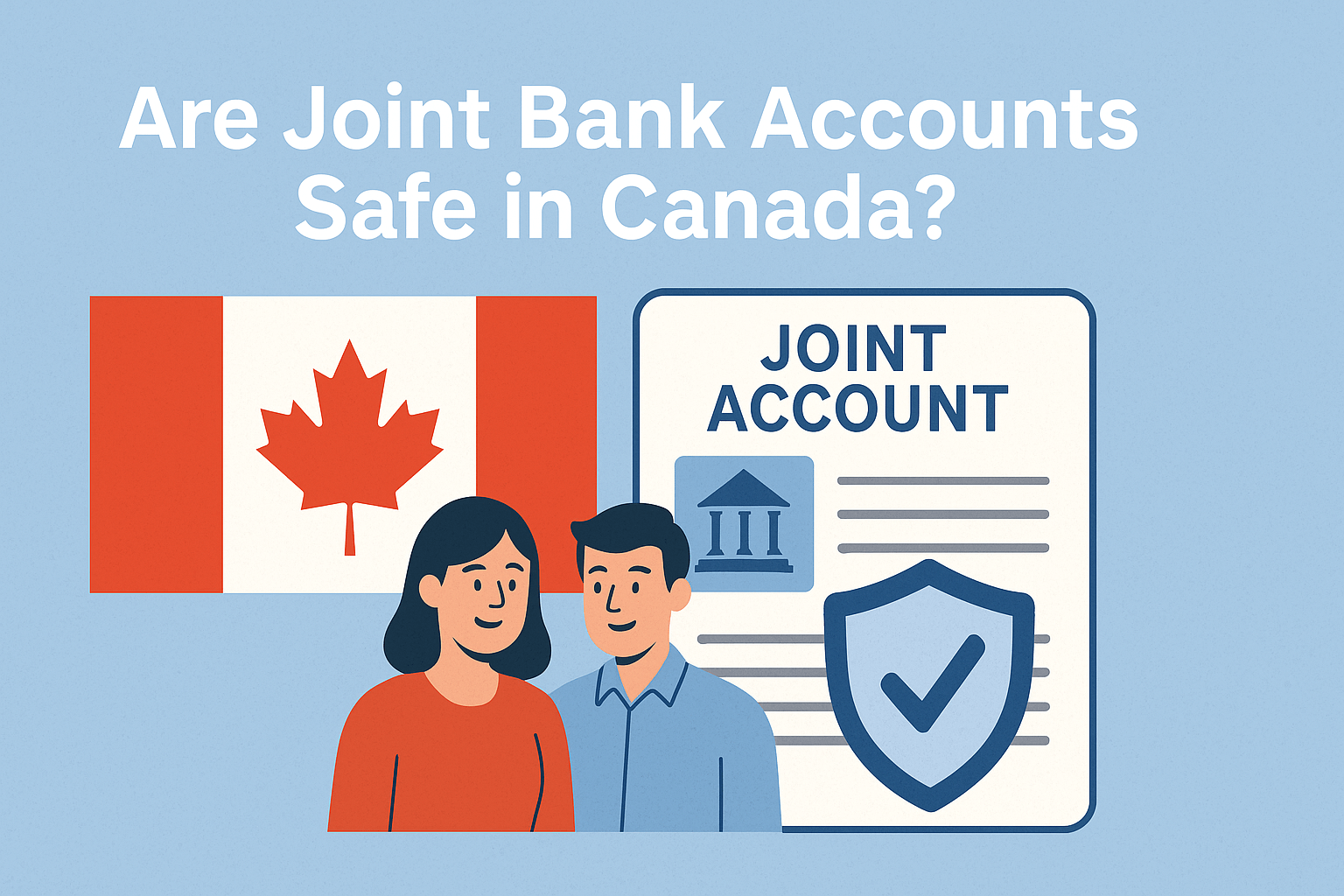Joint bank accounts can be incredibly convenient, especially for couples, families, or business partners who share financial responsibilities. But are joint bank accounts safe in Canada? The answer depends on how you use them, who you open one with, and what your financial goals are.
In this guide, we’ll explain the benefits and drawbacks of joint accounts, when they make sense, when they don’t, and how to protect yourself from risk.
What Is a Joint Bank Account in Canada?
A joint bank account is a chequing or savings account shared by two or more people. All account holders have equal access to the funds, meaning:
- Either party can deposit or withdraw money
- Both parties can see transaction history
- One person can empty the account without the other’s permission
Joint accounts are common among:
- Married or common-law couples
- Parents and adult children
- Seniors and caregivers
- Business partners
Are Joint Bank Accounts Safe in Canada?
Technically, yes—joint bank accounts are secure in terms of banking infrastructure and fraud protection. Canadian banks use the same encryption and security measures for joint accounts as they do for individual ones.
However, the real question is whether they’re safe from misuse, miscommunication, or conflict. Because each account holder has full legal access, the risks are mostly relational and financial, not technical.
That means the safety of joint bank accounts in Canada depends more on who you share it with than the bank you choose.
Pros of Joint Bank Accounts in Canada
1. Convenience for Shared Expenses
Joint accounts make it easy to manage rent, groceries, utilities, or other shared bills. You don’t have to split everything manually.
2. Transparency
You can see all transactions in one place, which builds trust between partners or family members.
3. Simplifies Estate Planning
In most provinces, funds in a joint account pass directly to the surviving account holder when one person dies, avoiding probate.
4. Helps with Elder Care
Some families use joint accounts to help manage a senior parent’s money, ensuring bills get paid and fraud is avoided.
5. Dual Earning Power
Lenders may view a joint account with dual income streams as a sign of financial stability, which can help when applying for loans or mortgages.
Cons of Joint Bank Accounts in Canada
1. Loss of Individual Control
Either party can withdraw all the money at any time. If trust is broken, there’s little recourse without going to court.
2. Liability for the Other Person’s Actions
If one person overdraws the account or uses it irresponsibly, the other is equally responsible.
3. Credit Score Risk
While joint accounts don’t appear on credit reports directly, if they are tied to overdraft or credit lines, misuse can impact both parties’ credit.
4. Relationship Breakdown Risks
If a couple separates or if there’s a family dispute, access to joint funds can become a major point of contention.
5. Legal Complications
Some people mistakenly believe they automatically inherit a joint account. But in Canada, inheritance rules vary by province and may require legal clarification.
Best Practices for Using Joint Bank Accounts Safely
If you decide to open one, here’s how to keep joint bank accounts safe in Canada:
- Only open one with someone you fully trust
- Spouse, long-term partner, adult child
- Set clear rules in writing
- Agree on who contributes what and when
- Monitor activity regularly
- Check statements monthly to avoid surprises
- Avoid connecting it to credit products
- If you do, ensure both parties understand the risk
- Keep separate personal accounts too
- Maintain your financial independence
- Close it promptly if circumstances change
- Especially after a breakup or legal dispute
- Communicate openly
- Joint accounts work best with full transparency
Alternatives to Joint Bank Accounts in Canada
Not everyone needs a joint account. Consider these options:
- Shared budgeting apps like Splitwise, YNAB, or Mint
- Separate accounts with shared credit cards for household spending
- Power of attorney instead of joint ownership for seniors
- Automatic transfers to manage shared bills
These alternatives let you cooperate financially without tying up all your money together.
Real-Life Example: When It Went Wrong
A woman in Ontario shared a joint account with her elderly father to help pay bills. When he passed away, her siblings contested her access to the funds. Even though the account was joint, the estate lawyer argued it was meant for convenience, not inheritance.
Moral of the story: if you’re using a joint account for estate planning, consult a lawyer and document everything clearly.
When Joint Accounts Make Sense
- Couples with shared long-term financial goals
- Parents managing household expenses together
- Adult child assisting elderly parent with finances
- Roommates splitting rent or bills
In these cases, the convenience often outweighs the risk.
When to Avoid Joint Bank Accounts
- New relationships or casual partners
- Business relationships without a formal agreement
- When one party has poor credit or spending habits
- If you value privacy in your financial life
Remember: joint means equal access. If that’s not okay with you, a joint account is not the right choice.
FAQs
1. Are joint bank accounts safe in Canada for couples?
Yes, if there’s trust and open communication. Many married or common-law couples use them safely.
2. Can one person empty a joint account in Canada?
Yes. Legally, both parties have full access to all funds.
3. Does a joint account affect your credit score in Canada?
Only if it’s tied to a credit product like overdraft. Otherwise, it doesn’t appear on credit reports.
4. What happens to a joint account when one person dies in Canada?
It usually goes to the surviving account holder, but consult an estate lawyer to confirm based on your province.
5. Can I remove someone from a joint bank account?
Not alone. Both parties must agree. You may need to close and open a new account.
6. Is a joint account better than power of attorney?
Not necessarily. POA gives legal access without joint ownership, which may be safer in some elder care situations.
7. What bank protections exist for joint accounts in Canada?
Same as individual accounts: deposit insurance, encryption, fraud protection.
8. Are joint bank accounts good for budgeting?
Yes, if you have shared expenses and open communication.
9. Do joint accounts help build credit?
Only if tied to products like joint lines of credit, not regular chequing/savings accounts.
10. What’s the biggest risk with joint bank accounts in Canada?
Loss of control and liability if the other person acts irresponsibly.
Final Thoughts
So, are joint bank accounts safe in Canada? Technically, yes. But financial safety also includes emotional and legal safety. They work well in committed partnerships or families with clear agreements, but they’re not one-size-fits-all.
If you do open one, protect yourself with transparency, legal documentation, and a fallback plan. Keep a separate account for yourself and check your statements often.
Financial trust is powerful, but so is financial independence. Choose the tool that fits your life best—and be ready to adapt if things change.
Thinking about a joint account? Or had a bad experience with one? Share your story in the comments—it could help someone else make a smarter decision.
What Happens If You Only Pay the Minimum on Your Credit Card Canada?


